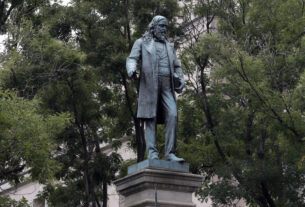WASHINGTON, Sept 13 — In the midst of heightened geopolitical tension across the Middle East, US President Donald Trump’s top diplomat, Senator Marco Rubio, is scheduled to arrive in Israel this weekend. The visit follows a controversial Israeli airstrike targeting Hamas leaders in Qatar, and renewed expansion of Israeli settlements in the occupied West Bank — both moves that have unsettled key US allies in the region.
Deputy State Department spokesman Tommy Pigott confirmed Thursday that Rubio will depart today and head first to Israel, before linking up with Trump during the President’s upcoming visit to Britain.
While in Israel, Rubio is expected to underline the strong alignment between Washington and Tel Aviv. The emphasis, according to Pigott, will be on two shared priorities: ensuring Hamas never again governs Gaza, and working toward the release of hostages taken during the October 7, 2023, attacks in which over 1,200 Israelis were killed and 251 were taken hostage.
Since then, Israel’s retaliatory military campaign has led to the deaths of over 64,000 Palestinians, according to local authorities — a toll that has ignited international outcry and intensified scrutiny. The humanitarian toll has also sparked a hunger crisis in Gaza and prompted formal accusations of genocide against Israel by the world’s largest association of genocide scholars.
Rubio’s journey to the region reflects a delicate balancing act. Just hours before departing, he met with Qatar’s Prime Minister Mohammed bin Abdulrahman Al-Thani at the White House, a significant meeting considering that Qatar has been a key mediator in ceasefire and hostage negotiations.
That fragile diplomacy was severely disrupted earlier this week when Israel launched an airstrike in Doha, targeting Hamas political leadership — a move reportedly made without US consultation. The strike drew condemnation from several Arab states and has jeopardized ongoing diplomatic talks facilitated by Qatar.
The visit also comes ahead of anticipated high-level sessions at the United Nations in New York, where countries like France and the UK are poised to formally recognize Palestinian statehood. Washington remains opposed to this, arguing it could strengthen Hamas and lead to irreversible changes on the ground — including potential annexation of West Bank territories by hardliners within Israel’s ruling coalition.
On Thursday, Israeli Prime Minister Benjamin Netanyahu signed a fresh agreement to move forward with settlement expansion deep into contested West Bank land — territory Palestinians envision for a future state. The United Arab Emirates swiftly condemned the move, warning that it crosses a red line and threatens to unravel the 2020 Abraham Accords that normalized relations between Israel and Gulf nations.
Rubio’s agenda in Israel includes meetings with top officials to reaffirm opposition to what Pigott called “anti-Israel actions,” such as unilateral Palestinian state recognition and legal proceedings at the ICC and ICJ. Notably, the International Criminal Court has issued a warrant for Netanyahu’s arrest, while the International Court of Justice has ordered Israel to prevent acts of genocide.
In a deeply emotional prelude to his trip, Rubio also sat down with families of hostages still held by Hamas — a reminder of the deeply human cost underlying these high-stakes diplomatic efforts.





